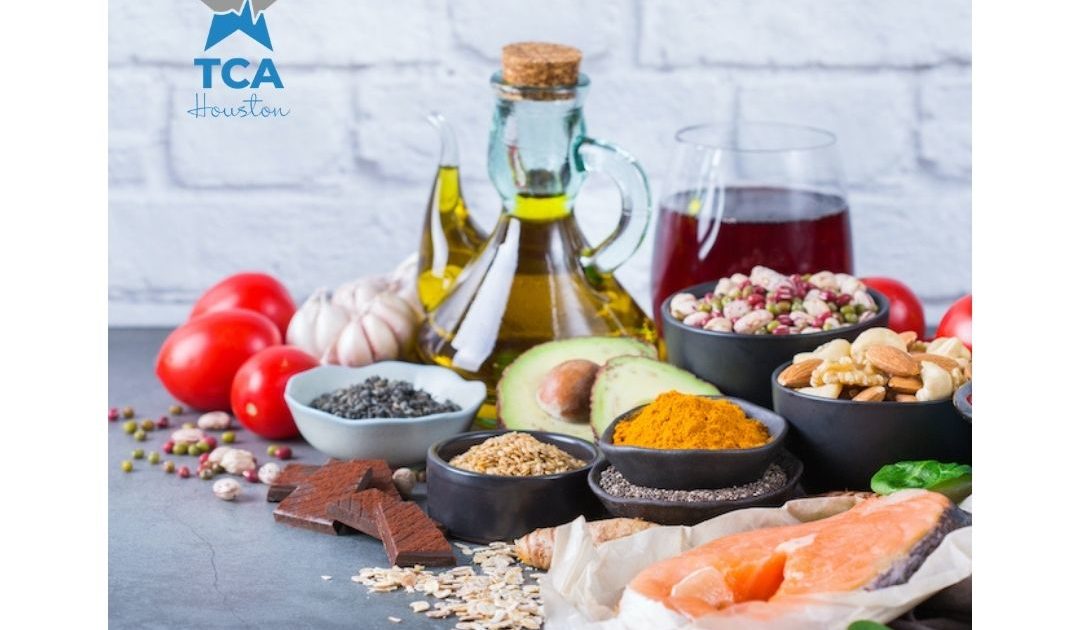How to Lower Your Cholesterol: 5 Tips from TCAH
-
March 4, 2021
- Posted by: Ashlie Miller

Wondering how to lower your cholesterol? Whether you’re on medicine for your cholesterol or trying to improve your heart health, there are lifestyle changes with the potential to improve your cholesterol. Moreover, if you’re already on medication, they might even help to boost your medicine’s cholesterol-lowering power.
For years, there’s been a lot of information hitting the public about the dangers of cholesterol. The reality of it is that high cholesterol increases your risk of heart attacks and heart disease. Your Kingwood cardiologist at TCAH can help by prescribing medications that work to improve your cholesterol. However, there are a handful of healthy lifestyle changes that give your system a boost.
When you want to know how to lower your cholesterol, the first step is to talk to your physician. In certain cases, medication is required. If you already take medicine, these healthy changes can add a boost to your system.
Tip 1: Heart-Healthy Foods
With a few changes to your diet, you can start to reduce your cholesterol and improve your heart health. Remember, everyone’s body is different, so there’s no universal plan that ensures lower cholesterol. However, these methods have a good track record in helping many individuals.
Eliminate Trans Fats
Sometimes called “partially hydrogenated vegetable oil,” trans fats are used in a lot of store-bought cakes, cookies, and crackers. You’ll also see them used in margarines. Trans fats raise your overall cholesterol level. In fact, the Food and Drug Administration banned the use of partially hydrogenated vegetable oils at the start of this year.
Reduce Saturated Fats
Saturated fats are typically found in full-fat dairy products and red meat. When you lower the amount of saturated fats in your diet, it helps to reduce your low-density lipoprotein (LDL) – often known as the “bad” cholesterol.
Go for Omega-3 Fatty Acids
While omega-3 fatty acids won’t affect LDL, they have shown other benefits for heart health, including helping to reduce blood pressure. These foods include fish like salmon, mackerel, and herring, but you can also find them in flaxseeds and walnuts.
Whey Protein
Found in dairy products, whey protein accounts for many of the health benefits we attribute to dairy. Studies have shown that whey protein gives a supplemental boost to lower total cholesterol, LDL cholesterol, and blood pressure.
Soluble Fiber
Soluble fiber has shown the potential to reduce how much cholesterol is absorbed into your bloodstream. It is found in foods such as Brussels sprouts, pears, apples, kidney beans, and oatmeal.
Tip 2: Regular Exercise
When you want to know how to lower your cholesterol and improve your heart health, physical activity and exercise play an important role. Moderate physical activity helps to raise high-density lipoprotein (HDL) – often called the “good” cholesterol.
If your doctor approves, work up to about 30 minutes of exercise five times a week or about 20 minutes of vigorous aerobic activity three times each week. You can also add in short intervals of physical activity throughout the day:
- Take a walk daily
- Ride your bike
- Play your favorite sport
If you need help staying motivated, look for an exercise buddy or join an online group of supportive people who enjoy the same hobby.
Tip 3: Stop Smoking
For many people, this is harder than it sounds. However, when you want to know how to lower your cholesterol, cutting out this habit can improve your HDL cholesterol. Oftentimes, people see the benefits fairly soon after they quit smoking, too.
- Your blood pressure and heart rate recover from cigarette-induced spikes within 20 minutes.
- After 3 months, your lung function and blood circulation start to improve.
- Within a year, your risk of heart disease is much lower than the average smoker’s.
Tip 4: Try to Lose Weight
While this tip isn’t applicable to everyone, even a few extra pounds can raise your cholesterol. If you implement these other tips, hopefully, weight loss is a healthy byproduct of reducing your cholesterol. With a few quick changes, you can start to improve your overall health and work on improving your heart health.
- Switch from sugary drinks to water.
- Replace high-density calorie foods with lower calorie alternatives.
- Incorporate more activity into your daily routine.
- Take walks during breaks.
- Cook for yourself instead of ordering out.
Tip 5: Moderate Alcohol Intake
Note: If you don’t drink, this is not a recommendation to start drinking.
When you moderate your use of alcohol, it shows a link to higher levels of HDL cholesterol. Whenever you drink alcohol, it’s important to moderate it in general. This will benefit your overall health as well as your mental health. For healthy adults, that’s about one drink per day for women of all ages and men over 65. For men 65 and under, that’s up to two drinks per day.
However, too much alcohol leads to serious health problems, ranging from high blood pressure to heart failure and strokes.
Learn How to Lower Your Cholesterol with Your Kingwood Cardiologist
As we mentioned earlier, there’s no universal solution that works for everyone. Sometimes, healthy lifestyle changes simply aren’t enough to reduce cholesterol. When you visit the Kingwood cardiologists at TCAH, we believe in personalized attention. That’s why we work with you to develop a comprehensive treatment plan.
Wondering how to lower your cholesterol? Contact the team at TCAH and schedule an appointment today! Whether it’s a matter of medication or lifestyle changes, we can set you on the path to improved heart health.
